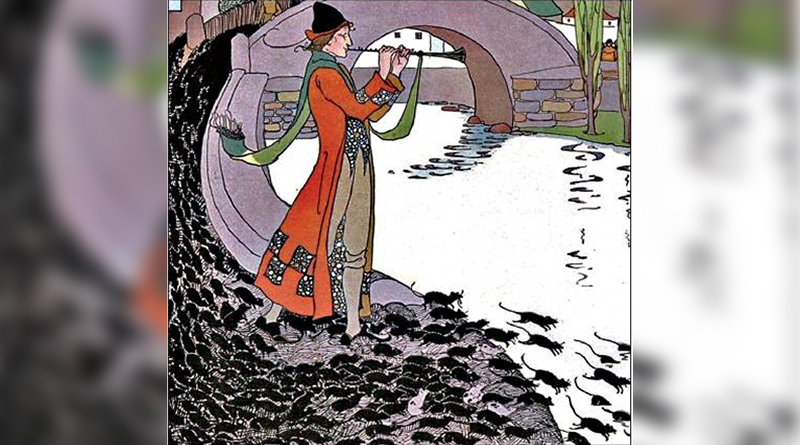State governments should crack down on social media on hate speech
I once hailed the rise of the internet as democratising free speech, enabling ordinary voiceless people to be heard by millions. Alas, along with this empowerment has come the spread of hate speech and communal falsehoods on a once-unimaginable scale that is wrecking Indian society and national unity.
Earlier, hatemongers had only a limited audience in the form of an assembled crowd or pamphlets. Big media cut out hate speech. Till the 1980s, the big newspapers would avoid using the words ‘Hindu’ or ‘Muslim’ in describing communal riots and only spoke of ‘people of one community’. Reports were checked for veracity and falsehoods eliminated.
Liar, Liar, States on Fire
Now through Facebook and Twitter, hatemongers and liars can instantly reach hundreds of millions of people. No court or government can move fast enough to check hate-inducing posts before publication even if inclined to. What the central and state governments can do is to threaten action against Facebook, Twitter and other social media for not checking hate-mongering. Since different parties rule different states, this political pressure will tend to promote impartial checking.
Globally, social media are being forced by market pressures as well as political ones to institute safeguards against falsehoods and hate. Facebook once refrained from interfering in anything said by politicians in the US stating that it feared this would contravene constitutional guarantees on free speech. But it has now given way.
This is due not simply to public criticism but also because of corporate action that can wound its profits and share price. Public anger over white racism brought demands from consumers on major corporations to stop advertising in social media that transmitted hate. Unilever, the consumer goods giant, withdrew advertisements saying Facebook was not doing enough to check gross hate-mongering. Other companies, from Verizon Communications to Hershey, also stopped social media ads. Coca-Cola said it would pause advertising on social media for at least 30 days.
For Facebook, this meant not only losing millions of dollars in advertising revenue but also a crash in share price that wiped billions from the company’s market value. In response, Facebook owner Mark Zuckerberg promised to tighten checks on misuse of his platform. While the storm may have begun in the US, this will hopefully change Facebook’s culture everywhere, including India.
Any commercial company has an inbuilt bias towards pleasing the ruling parties in the countries where it functions. Facebook’s Indian staff detected hatemongers that clearly deserved to be banned. Yet, senior managers were reluctant to take actions that might antagonise the ruling party.
BJP politician T Raja Singh said in a Facebook post that Rohingya Muslim immigrants ‘should be shot’, called Muslims traitors and threatened to raze mosques. There were excellent reasons to blacklist him. But, as revealed by the Wall Street Journal (on.wsj.com/3haAjbq), Facebook’s head of Indian public policy, Ankhi Das, opposed applying hate speech rules to at least four individuals and groups linked with BJP even though they were ‘flagged internally for promoting or participating in violence’.
Opposition parties rose in protest. Congress’ Rahul Gandhi tweeted, ‘Facebook’s involvement in peddling fake and hate news needs to be questioned by all Indians.’ Opposition parties demanded the setting up of a joint parliamentary committee to probe Facebook’s policies and implementation.
On the Facebook of It
BJP spokesmen hit back. Tejasvi Surya, a BJP lawmaker and a member of the parliamentary committee on IT, rejected the idea that Facebook was showing favouritism to the governing party, and instead charged it was ‘censoring pro-India and pro-Hindu voices’. Union IT minister Ravi Shankar Prasad said most Facebook bans had been on the right-wing, reflecting the political bias of Facebook staff. Sorry, but this simply shows that the right-wing does far more hate-mongering than others, in India as well as the US.
Facebook will naturally fear vindictive responses from the BJP being tough on Hindutva hatemongers. Yet, non-BJP states could also threaten action against Facebook for going easy on hate speech.
Both BJP-ruled and non-BJP-ruled states have often misused laws on sedition and promotion of enmity to arrest critics. As a journalist, I am loath to suggest government censorship of any kind. Free speech is very important and, in any case, politicians of all parties tend to use censorship powers to intimidate and harm their critics in the holy name of the public interest.
However, free speech, like all fundamental rights, must be subject to reasonable restrictions. In the name of free speech, you cannot shout ‘Fire!’ in a crowded theatre and cause a panicky stampede injuring many. Nor should free speech be permitted to promote hate against any community or group, something that has become a huge menace with the rise of social media.
State governments control the police and prosecutions. So, even if the central government puts pressure on Facebook to be lenient on right-wing hate speech, non-BJP parties can act tough.
Unlike global corporations, Indian ones are much too afraid of the government to withdraw advertisements from Facebook on this matter. But global pressures are helping. These should be buttressed by State action to punish the social media that help spread hate.


